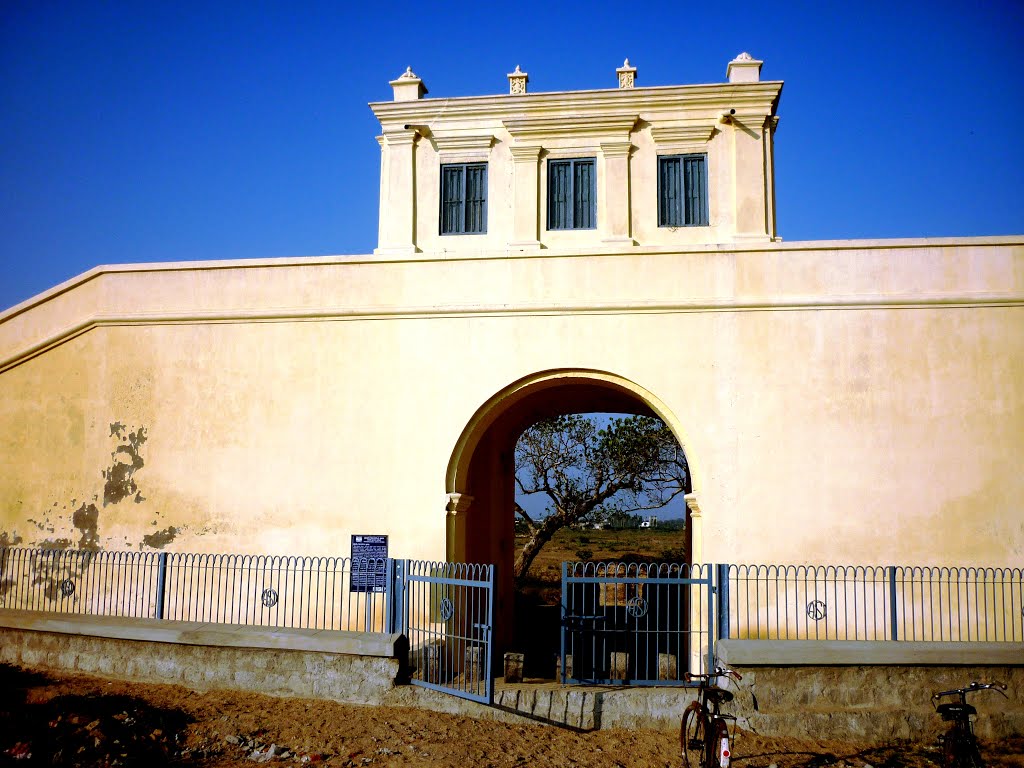History of Arcot

Arcot is a historic town located in the Ranipet District, state of Tamil Nadu, India. It was the capital of the erstwhile Arcot State, which was ruled by the Nawabs of Arcot from the 18th century until the Indian independence in 1947.
The town of Arcot has a rich history that dates back to the 2nd century AD. It was an important trade center during the Chola dynasty, and later came under the control of the Vijayanagara Empire. In the 16th century, Arcot was conquered by the Bijapur Sultanate, and subsequently by the Golconda Sultanate.
In the 18th century, the Nawab of Arcot became an important ally of the British East India Company. During the Second Carnatic War (1749-1754), the British helped the Nawab defeat the French, who were supporting the ruler of Hyderabad. As a result of this victory, the British gained control of several territories in southern India, including Madras (Chennai).
The Nawabs of Arcot played a crucial role in the history of the British Raj in India. They provided military and financial support to the British during the Carnatic Wars and other conflicts. In return, the British granted them various privileges and titles, including the title of Prince Azim Jah.
After Indian independence in 1947, the Arcot State was merged with the Madras Presidency and became part of the state of Tamil Nadu. Today, Arcot is a bustling town with a mix of ancient temples and historic buildings, and is known for its delicious biryani, a popular South Indian dish.
The town of Arcot was ruled by various dynasties and empires throughout its history. In the 18th century, it became the capital of the Arcot State, which was ruled by the Nawabs of Arcot. The first Nawab of Arcot was Zulfiqar Ali Khan, who was appointed as the governor of the Carnatic region by the Mughal Emperor Aurangzeb in the late 17th century. After the decline of the Mughal Empire, the Nawabs of Arcot became independent rulers of a small principality in southern India.
Under the Nawabs, Arcot grew in importance as a center of trade and culture. The rulers were known for their patronage of the arts and their lavish lifestyles. They built grand palaces, mosques, and gardens, and supported the construction of temples and other public buildings. The Nawabs of Arcot were also important allies of the British East India Company. They provided military and financial support to the British during the Carnatic Wars and other conflicts.
In return, the British granted them various privileges and titles, including the title of Prince Azim Jah. The Arcot State remained under the control of the Nawabs until Indian independence in 1947, when it was merged with the Madras Presidency and became part of Tamil Nadu. Today, the legacy of the Nawabs can be seen in the many historic buildings and landmarks in Arcot, including the Nawab’s palace and the mosque built by Zulfiqar Ali Khan.
Today's Ranipet News
Earthquake in Ladakh
The earthquake struck at 4.33 am today. An earthquake struck Leh in Ladakh this morning. The National Seismological Center reported that the magnitude of the earthquake was 4.5 on the Richter scale, which occurred at 4.33 am. The earthquake was centered at a depth of 5 km in Levee. Although buildings were slightly shaken due […]
Paddy Flood Relief Fund – Token Issue Launched
Chief Minister M. K. Stalin had announced that Rs 6,000 will be given as relief to family card holders. Due to the heavy rains in Thoothukudi and Nellai districts on the 17th and 18th, most of the areas were severely damaged by floods. On the orders of Chief Minister M.K.Stal, the Ministers, in flood repair […]
Fury over not keeping Nalli bone curry
The incident where the marriage was stopped due to Nalli Bone Curry has caused a shock. A young woman from Nizamabad in Telangana and a young man from Nahdia got engaged.As the argument ended, a clash broke out between the two sides. Both sides attacked each other. The police, informed about the incident, rushed to […]
ISL Football
The 10th edition of the Indian Super League (ISL) football tournament is underway in various cities. The 10th edition of the Indian Super League (ISL) football tournament is underway in various cities. The 12 participating teams are local,2 matches on away basis. The top 6 teams at the end of the league will qualify for […]




